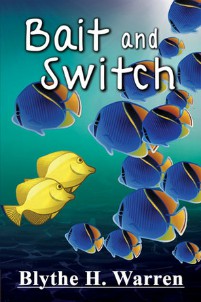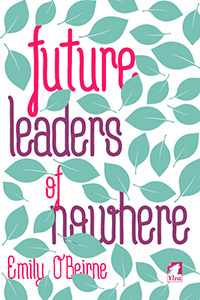Anyone who’s attempted to outrun her demons will attest that the endeavor is ultimately futile; however, it’s something that most of us have given a shot at some point in our lives. Would we have learned as much about ourselves had we done the “wise” thing and heeded the warnings of those around us? Could we understand the journeys of others as well as we now do had we just stayed put, waiting to see what unfolds? I’m guessing that your answer may be the same as mine.
Even if you’ve simply entertained the notion of escape, there’s a good chance that the story of Theo, the unlikely heroine of Cha-Ching! by Ali Liebegott, will resonate with you. On the cusp of thirty, Theo is convinced that if she leaves San Francisco to start over in New York, she will become the person who she wishes herself to be. She can see it so clearly — She wouldn’t drink, smoke or watch television; rather, she’d prove herself well-read, beginning with the complete works of Dostoyevsky and the biographies of legendary artists. Perhaps she’d even take a painting class, become an inventor and entrepreneur or read Crime and Punishment on the stationary bike at the gym. After all, she plans on getting a membership.
Moments before departing on her cross-country adventure, complete with her Butch Bathroom Wig to keep her from being hassled at truckstop restrooms given her gender ambiguity and military-style haircut, her destiny collides with that of another wounded soul — a pit bull who she names Cary Grant. Together the two of them embark upon a new life.
Arriving in New York, Theo does the best she is able with what she’s got, both in terms of internal and external resources. Not only does she have a small handful of cash in her pocket, an acquaintance to look up and enough charm to get by, but her alcoholism, problem gambling and loneliness have also come along for the ride. Although she makes a valiant effort to navigate her addictive tendencies, it isn’t long before she discovers that the addict within her is alive and well.
Although I was drawn to Theo from the start, I found her lack of jadedness somewhat disconcerting. Identifying as butch, Theo frequently refers to herself as a “timid sirma’amsir.” I had a hard time buying into the idea that she wouldn’t have adopted some sort of defense to safeguard her vulnerability; however, it is only while gambling that she endeavors to talk down her fear. In any other context, Theo possesses very little armor to protect her heart in spite of declaring a numbness that is betrayed by her rather frequent experience of emotion.
I also couldn’t let go of the fact that Theo’s reasons for wanting to flee San Francisco are never revealed. None of us make it through three decades without a story to tell, and I desperately wanted to learn of Theo’s history in order to understand more about the person who lived it. In passing, she makes a brief reference to arrests, lost girlfriends, a stint in a mental hospital and a “suicidal streak,” but there are no details provided and no mention of the catalyst for the move.
In spite of a few minor incongruities and the lack of backstory, I found myself unable to put Cha-Ching! down for a moment much less overnight and ended up reading it straight through — twice. What was the drive to keep reading? It wasn’t the quest for answers because there really are none to be found; rather, it was the desire to spend time with Theo in her world. After all, as familiar as I found her internal landscape to be, I wouldn’t be surprised if an understanding and acceptance of Theo just may allow us to extend the same humble courtesies to ourselves.




Widdershins says
What a lovely final sentence. 😀